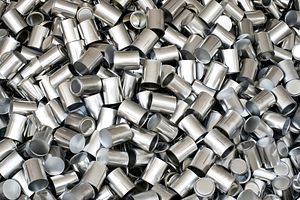A Norwegian parliamentary committee is asking questions of Norsk Hydro regarding its dealings with the Tajik Aluminium Company (Talco), which operates Tajikistan’s largest aluminium processing plant.
The British Virgin Island-registered company Talco Management Ltd (TML) exclusively conducts trade for Talco abroad and Norway would like to know who actually owns it. Based in Oslo, Hydro is partially-owned by the Norwegian state (which has a 34.3 percent stake, according to Reuters) and is one of the world’s largest aluminium companies, with operations in at least 50 countries.
Given several high-profile corruption cases in the last few years which linked Nordic companies–such as Sweden’s TeliaSonara and Norway’s Telenor–to corrupt Central Asian governments, Norway’s parliamentarians are keen to regain the upper hand on corruption.
In late February a Norwegian business newspaper, Dagens Næringsliv, published a lengthy report on Hydro’s 20 years of dealings with Talco, including direct negotiations with President Emomali Rahmon and his family members, and deals made with shell companies, the owners of which were not clear. Hydro’s business with Talco ran from 1993 to early 2012. “Through it all, Hydro seemed to have Norwegian government support from both ends of the political spectrum,” an English-language summary of the report says.
Hydro responded to the questions raised by the Norwegian media and coming from parliament with a brief explaining its dealings with Tajikistan. In the 2-page brief, Hydro recounts troubled relationship that ultimately ended in an arbitration court. Hydro’s first contract with Tajikistan was in the form of a barter agreement signed in 1993 with TadAZ (renamed Talco in 2007), “exchanging goods as an alternative to cash settlement.” But actual trade was interrupted by the Tajik civil war. In the late 1990s, TadAZ signed a contract with a Guernsey-based company called Ansol, which acted as the company’s customs agent. From 2000 to 2004, the volume of aluminium Hydro received was “just over 150 000 tonnes per year on average.”
Despite agreements to increase the volume, the trade stopped entirely in 2005, at which point Hydro took TadAZ and Ansol to an arbitration court that awarded Hydro compensation totaling $150 million. Recovering the funds has been difficult, given that at the time Tajikistan had not acceded to the New York Convention (aka the Convention on the Recognition and Enforcement of Foreign Arbitral Awards.) In late 2006, TadAZ agreed to “a combination of repayment, alumina deliveries and metal purchases over several years.”
The Norwegian parliament’s disciplinary committee began asking questions of Monica Mæland, the present minister of trade and industry. The trade ministry manages the government’s stake in Hydro. Mæland, who was apparently not satisfied with Hydro’s answers, pressed for a “more thorough accounting.”
The latest developments pertain to questions regarding the ownership of TML, which exclusively conducts trade on behalf of the Talco plant. Hydro, in its brief, says it thoroughly reviewed issued of risk and transparency when going into business with TML and Talco. The company says it received a list of TML’s owners but is contractually not allowed to release them.
In 2013, the Economist ran a blistering subtitle on an article about the Talco plant and its linkages to the Rahmon regime: “A president with an edifice complex is screwing the motherland.” In the article, the Economist unequivocally states that “Each year, TALCO produces hundreds of millions of dollars in profits that are routed to a shell company in the British Virgin Islands. Mr Rakhmon personally oversees TALCO.”
Norwegian parliamentarians have commented that they “can’t see that there should be any commercial reasons that such ownership shouldn’t be made public,” and are expecting to see the full contracts signed between TML and Hydro.
Monday, Hydro responded more fully to the trade ministry’s inquiries, releasing a 17-page report (available only in Norwegian at the moment) detailing the company’s business with Tajikistan. Hydro’s chairman, Dag Mejdell, says in the release, “Again, our conclusion is clear: There are no indications of Hydro having acted in violation of applicable laws, internal rules or guidelines.”
One might ask, given that Norway and Sweden are often listed as among the world’s least corrupt states, why the countries’ businesses are tied up in corruption problems stemming from Central Asia, itself one of the most corrupt regions in the world. It comes down to openness. Norway has one of the most open governments in the world. A great number of records are made available for public review. Therefore it’s not necessarily that more Norwegian business are involved in corrupt endeavors, but that it’s easier to discover when they are. A combination of free press and open access laws makes it difficult to hide dirty dealings if someone knows where to look. And frankly, any big resource business in Central Asia is likely to be fertile ground for corruption-hounds.
This isn’t likely the last we’ll hear of Hydro’s Tajik headache, though this will be yet another case study for businesses considering getting involved with Dushanbe.

































